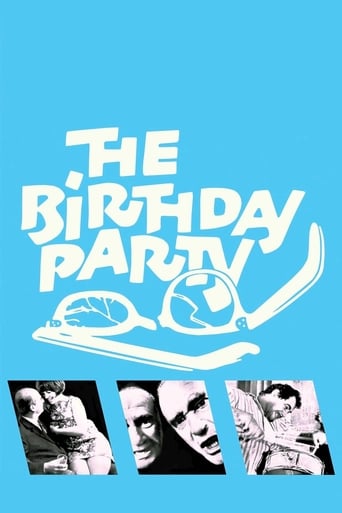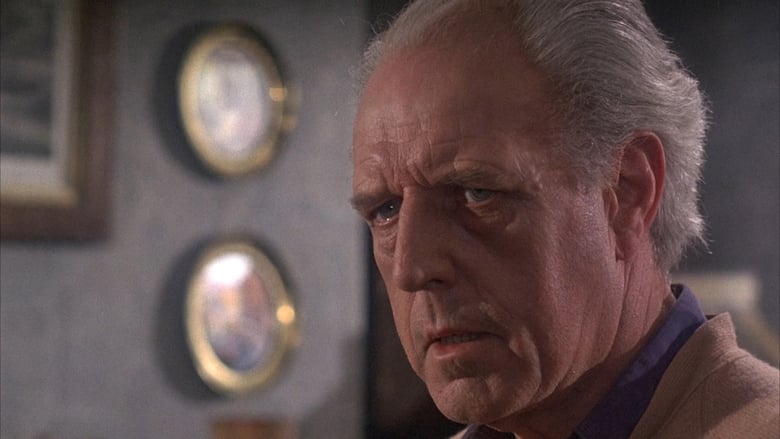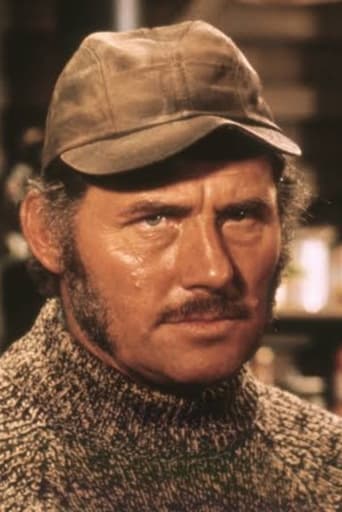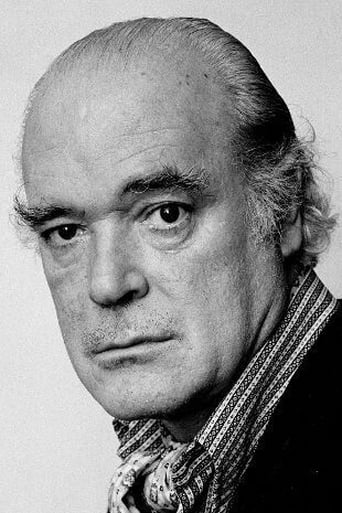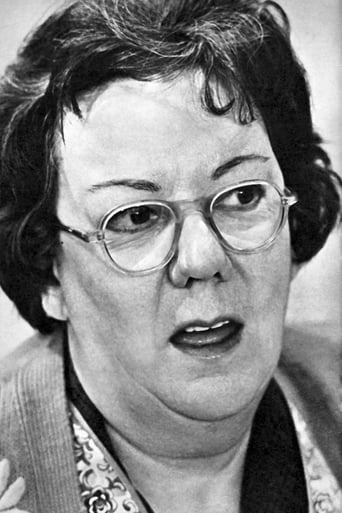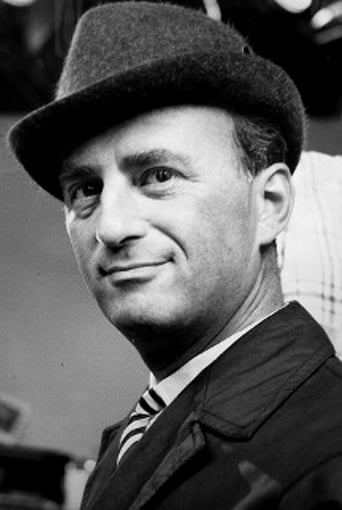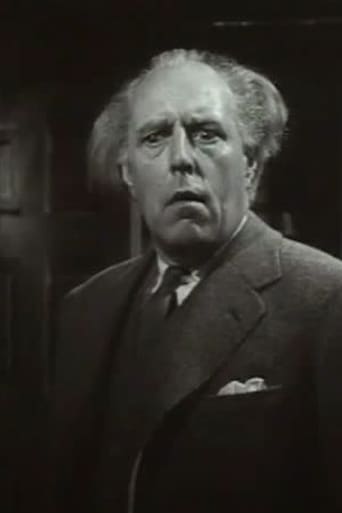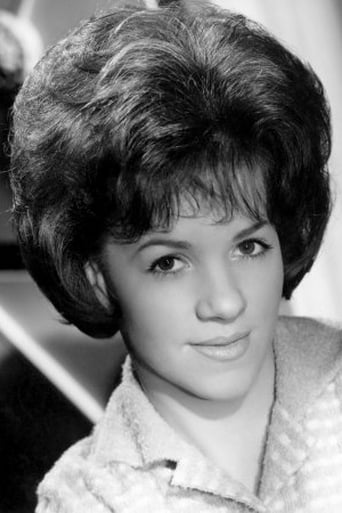Based on Harold Pinter's enigmatic play about a boarder in a British seaside dwelling who is visited by two strangers. They torment him verbally, ask him idiotic unanswerable questions, force him to sit down and stand up, and give him a "party". Then, eventually, they take him away, a tongue-tied idiot. The trivial becomes the terrible, and with it a certain wonder, a certain pity.


Reviews
I thought the first ten minutes or so were great as the film has a really nice gritty, dark, grimy look to it. The storyline and pace started off OK and I was interested to see how it would develop. However, after about twenty minutes or so, the non sequiturs and random unexplainable dialogue (that seemed to imply there was something more to everything that was being said but never actually went anywhere) started to become really boring.Once those two fellas entered the scene it started to drag even more. Just a bunch of rambling nonsense. I couldn't bear it any longer and flicked through the last half hour.
Harold Pinter's brilliant early play-on-film, The Birthday Party, is one of his best efforts, and perhaps, with The Homecoming, the pinnacle of the Theater of the Absurd. The plot itself is simple. Two men come to visit Stanley, a classical pianist who has, for unknown reasons, left his home and is staying with a provincial couple. He is visited by Shamus McCann (Patrick McGee) and Nat Goldberg (Sydney Tafler). They alternately celebrate and menace Stanley, who may or may or may not know them. Nothing is clearly stated. Most of the dialogue consists of insinuations and vague threats. Performances across the board are outstanding, with Robert Shaw outdoing himself as Stanley Weber. Moultrie Keisall as Petey is excellent but understated, and his final words really put the cherry on the birthday cake. (sorry for the pun). Nothing I can say can communicate the unique strangeness and power of this film. Top marks, 5 stars, classic.
As one of this world's more zealous Robert Shaw fans, I feel obliged to put this gem in every once in a while and follow Shaw's every move. I must say, this film amazes me; it confounds me every time. There's only one emotion that overwhelms my passion for Mr. Shaw's gift in front of the camera--irritation--and it's aimed right straight at the storyline. You will find yourself wondering what's going on and why, as the actors' performances blind you with their shabby, touching directness. Don't let the story creep and seep too far into your brain. The story will cloud your ability to appreciate what this film is full of--brilliant, golden performances. They all shine, especially Shaw as poor Stanley. I enjoy watching films that take me to England in the 60s. The surroundings are dreary and depressing and totally marvelous. This film is well worth seeing; but, once again, I warn you--ignore the story; adore the actors! Oh, and an extra bonus (for what it is worth)-- After watching this film, you'll never look at a newspaper the same way again, I guarantee you. Enjoy!
I must say I will take a little umbrage at the meagre critical reception this film has got; it seems to have largely been just written off as "well acted, *but* not suited/adapted to film". I would have to say it's a good thing to try and broaden the audience for what is undeniably a fine play in my opinion, by making a film. The film sticks very closely to the dramatic text, and it's a critical truism to say that the immediacy of theatre performance is lost. It may well be that Pinter is particularly good on stage (certainly judging by a recent run of "The Collection" that I saw in September), but he's also been very effective cinematically, in the adaptations of "The Servant" and "Accident". This is certainly a more constrained film than "Accident", and a little more so than the claustrophobic "The Servant"; one could say the director and others involved with the film are playing it safe, but that's no problem really, as the formula was excellent to begin with. Certain exterior shots do add a lot I feel, as does the subtle, suggestive opening in the car. For a film as "theatrical" as this is claimed to be, it has good camera sense, and handles the dialogue neatly. The scene where it shifts to monochrome in the dark light I did like. I feel that the scotched, grim, mundane colour stock of the film is certainly in tune with the play and the though.Most important perhaps, in a performance of Pinter on film, are the performances, and I must declare them to be excellent and overlooked. Robert Shaw, an actor I always enjoy ("A Man for all Seasons" and "From Russia With Love" making up a decidedly contrasting threesome of Shaw films I've seen...), is proficient as Webber, the absurd "mystery man" laying low in a seaside boarding house. Most impressive to my mind though, are Dandy Nichols, Patrick Magee and Sydney Tafler. Nichols certainly plays the darkly hilarious role of the unknowing, deluded Meg to a veritable tee. Magee and Tafler define the roles of Goldberg and McCann, the sinister, well-versed double-act, to such an extent that I'll definitely think of them in the roles from now on, when I think of the play. Magee is a foreboding, but often unwittingly droll presence in the film, timing his acting brilliantly. His Irish tones contrast finely with Goldberg's sophisticated Jewish-London accent. Tafler is an absolute marvel in this role, walking away with the film in many ways, embellishing another elusive, odd Pinter character, the most erudite in the play. He fills the screen amply and times the dialogue perfectly; a stunning performance, by a somehow obscure actor. The chap who played Petey Boles is also good, in a small but certainly necessary part.Of course, one unfamiliar with Pinter may be bemused by the oddball plot, struggle to come up with instant meanings and then describe it as weird and incoherent, as if those were bad things... Of course, it isn't truly incoherent; there are meanings and interpretations to be made if one pays close attention to the dialogue. And it is the dialogue, that, as ever with Pinter, dazzles. Suffice to say, I am not truly in a position to analyze and describe why his dialogue is so brilliant in a mere film review such as this is, but trust me, his dialogue is remarkable; making the banal seem rich and sinister, and the rich seem banal and ritualistic (in Goldberg's case). A worthy effort really, this film, I'd say, as it captures so much of the Pinter brilliance.Rating:- ****/*****
